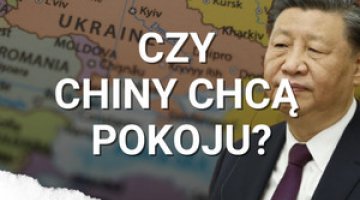‘Framework’ progress: a new package of Russian-Chinese energy agreements
On 3 September, during President Vladimir Putin’s visit to Beijing, another package of framework Russian-Chinese economic agreements was signed, mainly in the energy sphere. These included an agreement between the Russian oil company Rosneft and the Chinese petrochemical company Sinopec to cooperate on exploiting Russian oilfields (it provides for the Chinese company to acquire a 49% stake in the Russkoye and Yurubcheno-Tokhomskoye fields in East Siberia belonging to Rosneft); an agreement on the acquisition by Rosneft of a 30% stake in the Chinese company ChemChina Petrochemical Corporation; a memorandum of the acquisition by ChemChina of a controlling stake in the Far-East Petrochemical Company (a subsidiary of Rosneft); a memorandum between Gazprom and the Chinese company CNPC on the supply of gas via pipeline from the Russian Far East to China; and an agreement on the Chinese Silk Road Fund’s acquisition of a 9.9% stake in Russia’s Yamal-LNG project (a joint project of the Russian company Novatek, the French company Total, and CNPC).
Commentary
- On one hand, these agreements fit the trend observed over recent years of closer energy cooperation between Russia and China. On the other hand, however, they also highlight Russia’s increasing determination to open itself up to Chinese investments in strategic sectors. This is proved in particular by the provision for the possibility of Sinopec acquiring shares in Russian upstream projects, as well as Rosneft’s agreement with ChemChina to exchange assets in petrochemical projects.
- At the same time, these new contracts are (like many others in recent years) merely preliminary or framework agreements. Although their finalisation is likely – because Russia is under strong pressure due to its difficult economic situation and the existing Western sanctions – it is not at all certain that this will happen any time soon. Obstacles may arise in the forms of both pricing issues, one example of which is the agreement about CNPC’s acquisition of a 10% interest in the Vankor oil deposit belonging to Rosneft (the initial agreement was concluded in autumn 2014, but the deal has still not been finalised); and the Chinese side’s reluctance to invest in projects by Russian companies which have been (or potentially could be) hit by Western sanctions. Even in the case of such a promising project as the Yamal-LNG (Novatek, as one of the shareholders, has been subject to sanctions), only a preliminary agreement for the Silk Road Fund to acquire 9.9% of the shares has been concluded; the previously announced agreement that Chinese banks will grant loans to the tune of US $13.5 billion (half the total cost of the project) has still not been signed.
- The signing by Gazprom and CNPC of a memorandum on gas supplies to China from the Russian Far East was pure propaganda in tone. This would have been the third Russian-Chinese pipeline project after Power Of Siberia-1 (supplying gas to China along the so-called eastern route) and Power Of Siberia-2 (the so-called Altai project, for gas exports from western Siberian fields to the north-western provinces of China); its implementation – taking into account Gazprom’s financial problems and its difficulties with bringing in Power Of Siberia-1 on time – is unrealistic.




